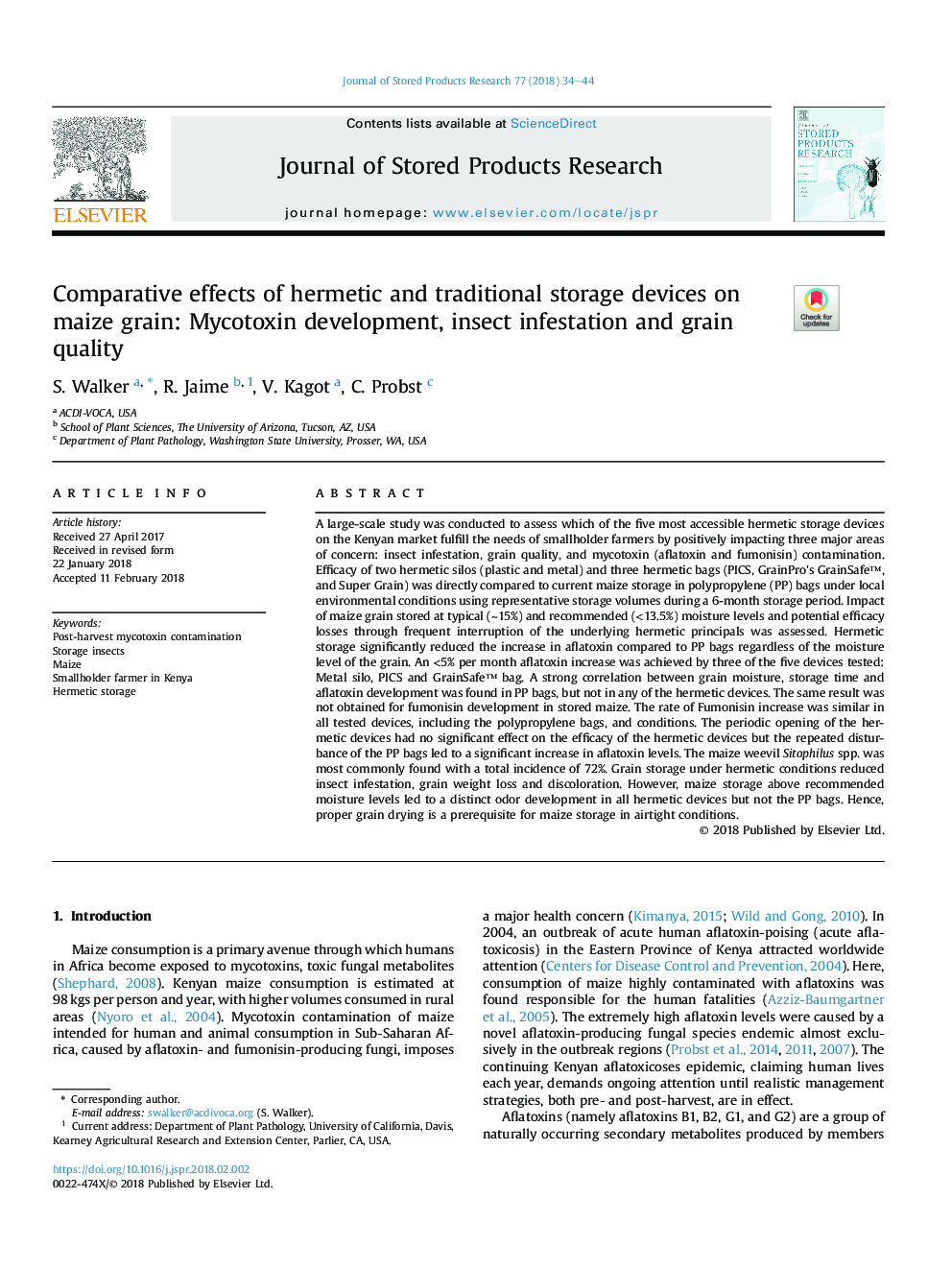| Article ID | Journal | Published Year | Pages | File Type |
|---|---|---|---|---|
| 8881624 | Journal of Stored Products Research | 2018 | 11 Pages |
Abstract
A large-scale study was conducted to assess which of the five most accessible hermetic storage devices on the Kenyan market fulfill the needs of smallholder farmers by positively impacting three major areas of concern: insect infestation, grain quality, and mycotoxin (aflatoxin and fumonisin) contamination. Efficacy of two hermetic silos (plastic and metal) and three hermetic bags (PICS, GrainPro's GrainSafeâ¢, and Super Grain) was directly compared to current maize storage in polypropylene (PP) bags under local environmental conditions using representative storage volumes during a 6-month storage period. Impact of maize grain stored at typical (â¼15%) and recommended (<13.5%) moisture levels and potential efficacy losses through frequent interruption of the underlying hermetic principals was assessed. Hermetic storage significantly reduced the increase in aflatoxin compared to PP bags regardless of the moisture level of the grain. An <5% per month aflatoxin increase was achieved by three of the five devices tested: Metal silo, PICS and GrainSafe⢠bag. A strong correlation between grain moisture, storage time and aflatoxin development was found in PP bags, but not in any of the hermetic devices. The same result was not obtained for fumonisin development in stored maize. The rate of Fumonisin increase was similar in all tested devices, including the polypropylene bags, and conditions. The periodic opening of the hermetic devices had no significant effect on the efficacy of the hermetic devices but the repeated disturbance of the PP bags led to a significant increase in aflatoxin levels. The maize weevil Sitophilus spp. was most commonly found with a total incidence of 72%. Grain storage under hermetic conditions reduced insect infestation, grain weight loss and discoloration. However, maize storage above recommended moisture levels led to a distinct odor development in all hermetic devices but not the PP bags. Hence, proper grain drying is a prerequisite for maize storage in airtight conditions.
Keywords
Related Topics
Life Sciences
Agricultural and Biological Sciences
Agronomy and Crop Science
Authors
S. Walker, R. Jaime, V. Kagot, C. Probst,
